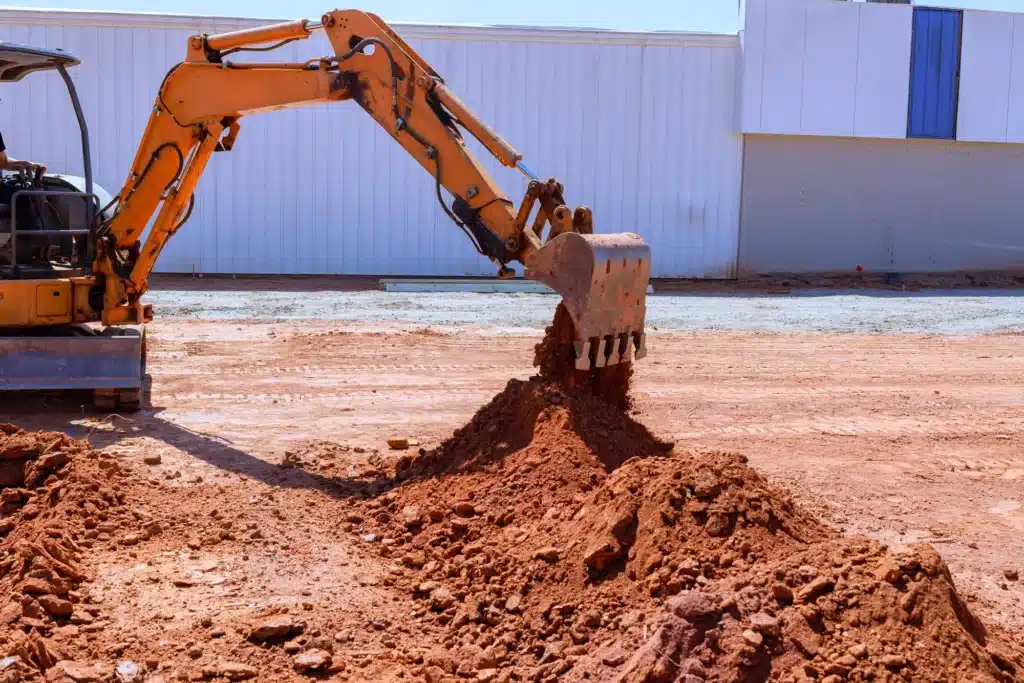Even a cleared site isn’t build‑ready until soil is selectively moved, trenches are cut, water is guided, and bearing conditions are addressed. Excavation is the quiet determinant of whether structures last, utilities function, and drainage behaves.
Beyond “Digging”
Good excavation is controlled disturbance: remove only what you must, reshape what you need, and leave undisturbed soils strong. We handle trenching (utilities, drains), cut/fill balancing, over‑excavation of unsuitable pockets, swale formation, and subgrade shaping prior to pad or finish grading.
Sequencing Makes or Breaks Efficiency
Excavation should follow clearing but precede final pad compaction, so remediation of soft zones isn’t hidden under fill. Trenches for utilities and drains ideally run before the pad perimeter is locked. Where poor soils appear (organics, collapsible pockets), we over‑excavate and backfill with suitable compactable material.
Managing Spoils
Not all spoils are equal: root‑laden organic overburden, clean mineral subsoil, and unsuitable saturated pockets get staged differently. Reusable fill stays on site near future lift zones; unusable material is queued for removal or stabilization strategy.
Drainage Awareness
Too many sites discover ponding after framing. Proper excavation sets fall lines early—subtle swales, channel relief, or daylight points. We shape water away from structural footprints, not toward fence corners or neighboring parcels.
FAQs
Do you install the actual utilities? We excavate and bed; licensed trades place lines unless bundled by agreement.
How do you handle rain delays? Moisture levels that compromise bearing or compaction trigger rescheduling.
Can you export excess spoil? Yes—hauling priced by volume, material type, and distance.
What accuracy tools do you use? Laser / grade references as scale demands.

